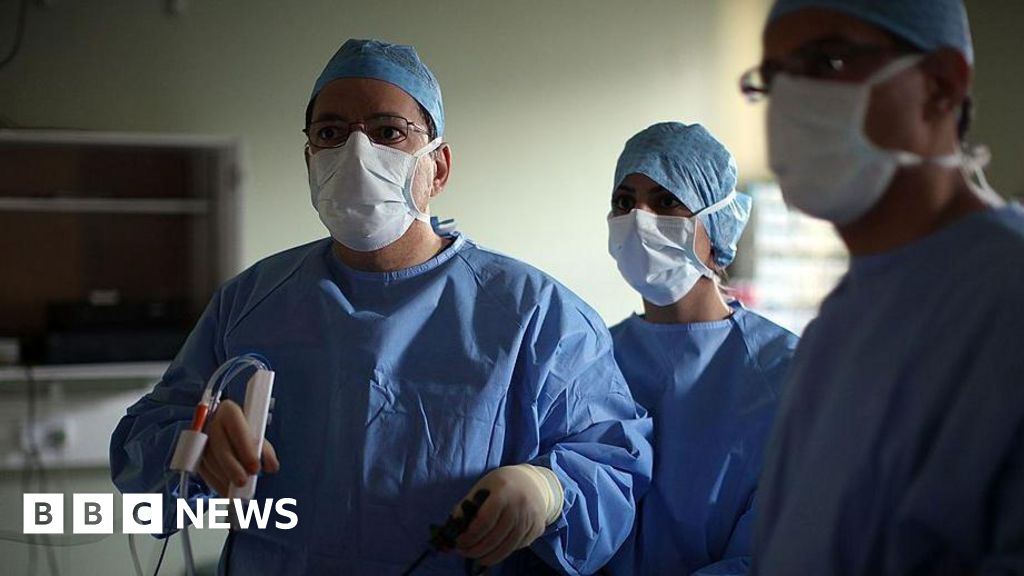
Hundreds of NHS quangos to be scrapped in 10-year health strategy
How did your country report this? Share your view in the comments.
Diverging Reports Breakdown
Hundreds of NHS quangos to be scrapped in 10-year health strategy
Hundreds of NHS quangos to be scrapped as part of Labour’s 10-year health strategy. Health Secretary Wes Streeting said the current system was too complex. He said the NHS needed “more doers and fewer checkers” The organisations to be abolished include Healthwatch England and the National Guardian’s Office, which supports whistleblowers. The decision comes after Prime Minister Sir Keir Starmer announced in March that NHS England would be axed and the system brought under closer government control. In the future, patients will be encouraged to make greater use of the NHS smartphone app to leave personal feedback on the care they receive. Patients will be asked to review their treatment and, if a low rating is given, a proportion of that funding could be diverted to a regionally-held NHS improvement fund.
35 minutes ago Share Save Jim Reed • @jim_reed Health reporter Share Save
Getty Images
Hundreds of bodies responsible for overseeing and running parts of the NHS in England will be scrapped, the government has said. The organisations to be abolished include Healthwatch England, which advocates on behalf of patients, and the National Guardian’s Office, which supports whistleblowers. Health Secretary Wes Streeting said the current system was too complex and the NHS needed “more doers and fewer checkers”. The changes are being made as part of Labour’s 10-year health strategy set to be published next week.
Ten year NHS plan
In total 201 organisations will be scrapped, including bodies set up by the last Conservative government to develop health plans for their local areas. The organisations to be abolished include: Healthwatch England, set up in 2012 to speak out on behalf of NHS and social care patients, and to advise ministers when services were not up to scratch. The National Guardian’s Office, created in 2015 to encourage the NHS to support whistleblowers and train a network of 1,200 peer support ‘guardians’. The Health Services Safety Investigations Body (HSSIB), which has recently carried out investigations into a range of subjects including the design of portable oxygen systems and the impact of ambulance delays. The decision comes after Prime Minister Sir Keir Starmer announced in March that NHS England, the administrative body responsible for the day-to-day management of the health service, would be axed and the system brought under closer government control.
Ministers said there were more than 150 bodies responsible for regulating or assessing healthcare services in England, and they risked overwhelming staff with “uncoordinated” guidance. “Over the past decade and a half, an overly complex system of healthcare regulation and oversight has been left to spiral out of control,” said Mr Streeting. “So many of the problems in the NHS come down to a failure to listen to patients. The changes we are making will hold a megaphone up to patients’ lips, and force the service to listen to their feedback.” In the future, patients will be encouraged to make greater use of the NHS smartphone app to leave personal feedback on the care they receive.
PA Media Health secretary Wes Streeting said the current system was too complex
Matthew Taylor, the chief executive of the NHS Confederation, which represents providers of health services, said any opportunity to reduce duplication and invest money into frontline care should be welcomed. “However, NHS leaders would encourage the government to not forget the failings that led to these bodies being set up in the first place and tread carefully so as to ensure their vital missions continue in future,” he added. “Staff and patients will still need safe spaces where they can speak up.”
Pay by ratings
Under the new strategy, the NHS will also trial a scheme linking the money a hospital receives directly to the quality of care it provides. Patients will be asked to review their treatment and, if a low rating is given, a proportion of that funding could be diverted to a regionally-held NHS improvement fund rather than paid to the hospital itself. The government said the scheme would only be introduced where there had been a track record of very poor service and evidence that patients were not being listened to. The NHS Confederation warned it would have to be carefully designed to stop hospitals being penalised for issues beyond their immediate control such as difficulties recruiting staff and the poor state of some hospital buildings.
Patients seen as ‘inconvenience’
Source: https://www.bbc.com/news/articles/c3w4xl8gyyqo
